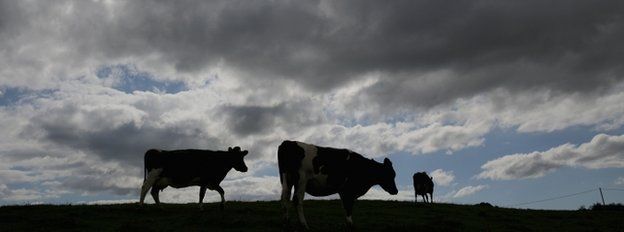Ministers met farming representatives in London, in the wake of dozens of protests in recent weeks.
Environment Secretary Liz Truss said she wanted better labelling of British produce in supermarkets.
The National Farmers’ Union said the government was sending the «right messages» but protests would continue.
It said farmers were still «desperate».
NFU president Meurig Raymond said he was hopeful minsters would be «talking to everyone in the supply chain» to promote British produce in the supermarkets, and to «come up with fairer contracts».
Ms Truss described the meeting as «helpful and productive».
«It was an encouraging meeting and I believe we can help build stronger foundations that give the industry the long-term stability and commercial opportunities it needs to manage global volatility,» she said.
Ms Truss said the Department for Environment, Food and Rural Affairs would be putting together a working group «to talk to supermarkets and other providers about how we can get a better branding and better labelling of those [British] products».
Farmers say a reduction in global demand for milk has led to an oversupply in the UK, which has in turn seen prices plummet.
Scottish Rural Affairs Secretary Richard Lochhead said this was a «global issue» and there must be «urgent action at a Scottish, UK and EU level».
But he also called on the food industry to «step up to the plate and support farmers in their hour of need».
Monday’s talks follow demonstrations which have seen farmers bringing cattle into supermarkets and buying up stocks of milk from store shelves before giving it away for free.
Why has the price of milk fallen?

- Dairy farmers are competing in a global market place and supply is exceeding demand
- A Russian ban on imports, and a collapse in demand from China for dairy products, have played a part in the problem of falling milk prices, industry experts believe
- At the end of March the European Union lifted its quotas on the amount of milk farmers could produce
Aldi, Lidl and Asda have since said they would pay a minimum price of 28p per litre. Morrisons will pay 26p per litre from later this month, and it has also launched a brand of milk and cheese which it says will directly support producers.
Waitrose, Marks & Spencer, Tesco, the Co-op and Sainsbury’s say they already pay more than the cost of production for milk.
The industry estimates the average cost of production is 30-32p per litre.
